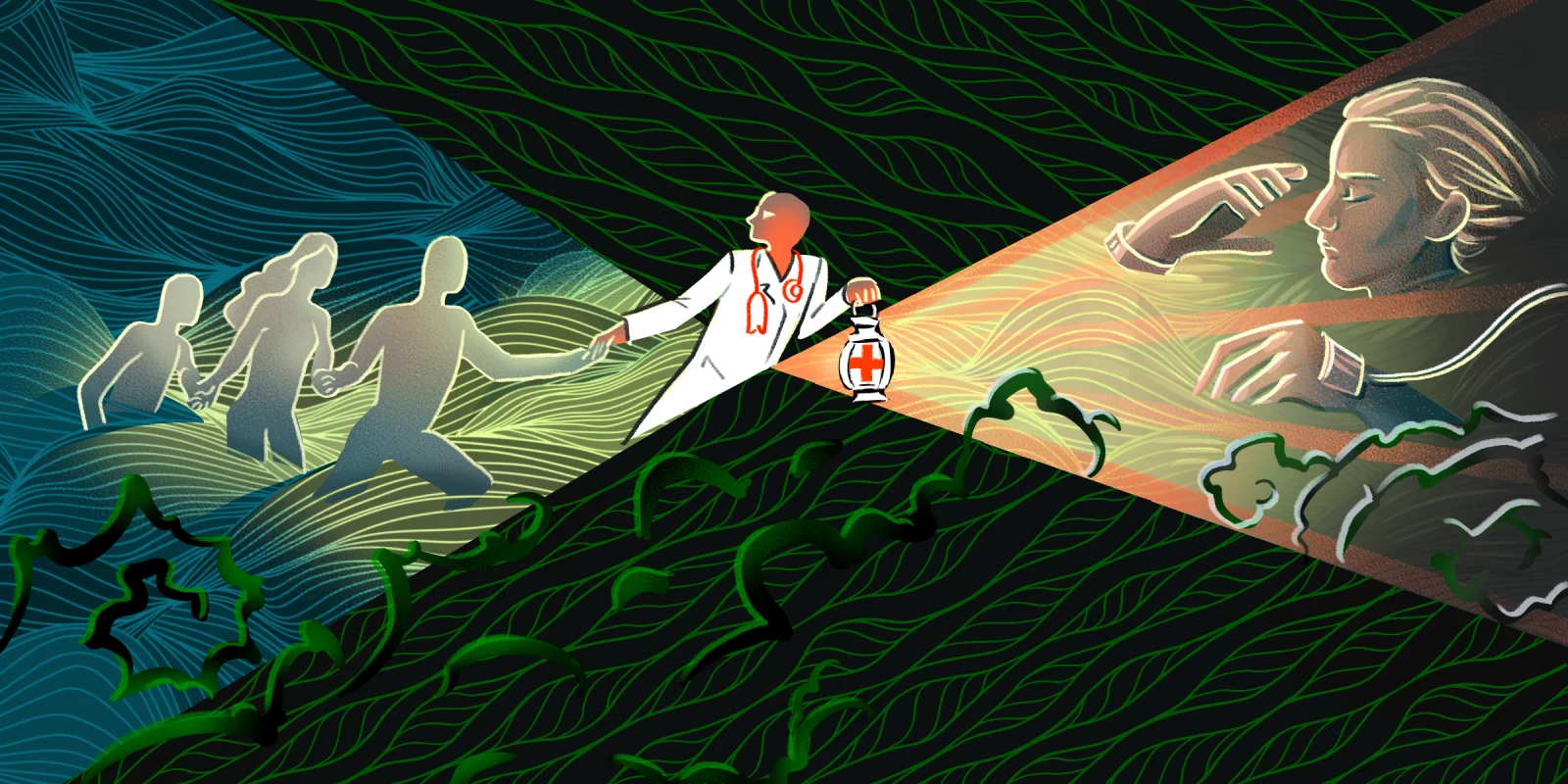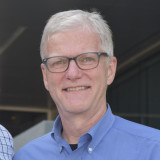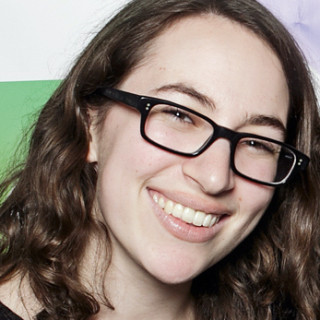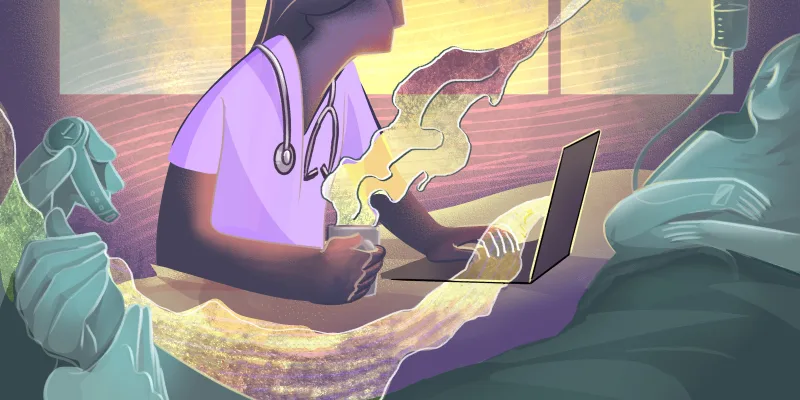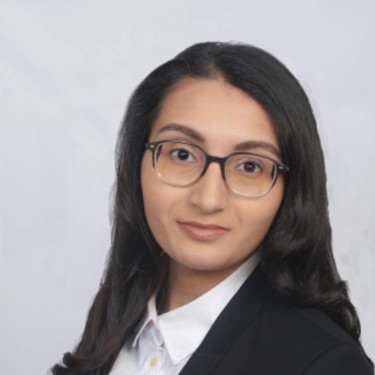She was from my parents’ generation; he was from mine. Her childhood was dominated by the Great Depression, his by the Cold War. She was in her early 20s during World War II; he spent his early 20s in Vietnam. Her oral cavity cancer was likely related to radiation treatments for her teenage acne; his was, no doubt, from his smoking. Although they never met each other, they will forever be inextricably linked in my memory.
Let me share their stories:
She developed a small, superficial cancer under her tongue, which I removed with a limited procedure when she was in her late 70s. Ten years later, I excised another small cancer. Although she healed completely, the second operation affected her swallowing and articulation for a few weeks. The surgery made her, as she said, “feel old.” “It was,” she informed me many times, “the worst thing ever! I will never have another surgery!”
Her reaction was consistent with her personality. She carried herself like many of the adults of the Greatest Generation, and her clinic visits were always memorable. She was a bit combative, skeptical, sure of herself, and ready to share her opinions. She mentioned her husband and son, but always came to her appointments unaccompanied. She was shaken when her husband died three years after her second surgery but, as I recall, never spoke of him again.
I followed her for many years, checking her surgical scars and offering suggestions to help with her dry mouth symptoms. Then, in her early 90s, a new, large cancer blossomed in her throat. “This is much more dangerous,” I told her.
Without hesitation, she drew herself up and pronounced that she would have no further treatment. “Nothing! No surgery! And radiation probably got me into this mess,” she said. “Just let me go.” She permitted no discussion.
During her final months, she refused hospice consults, allowed no visitors, and left the house only for medical appointments. When the home health aide brought her for a visit, she let me know that, “You people don’t do much to help me.” Her son, she said, was attentive, but he traveled for work and wasn’t around much. She canceled her next appointment and I never saw her again.
My other patient’s story also begins with a small oral cavity cancer that I removed with a simple procedure. At the time, he was in his early 40s, yet several areas of his mouth were already red and thickened from smoking. He knew he should quit but never quite managed to do it. I kept a close eye on him, taking a sample of a new nodule or ulcer at almost every visit. Pre-cancers evolved into superficial cancers, and then into deeper cancers as things worsened. His tumors became more aggressive. About three years after his first visit, he underwent successful surgery, radiation, and chemotherapy. Things finally settled down.
I never met his family. His long-standing problems with narcotics and alcohol predated his cancer and were, he admitted, responsible for his estrangement from his ex-wife, his two children, and all his siblings. He never mentioned them. It didn’t seem as though he had any close friends. He always came alone.
Several years later, he developed a new, large cancer of the tongue. His treatment options were very limited, having already had radiation, chemotherapy, and surgery. In those days before immunotherapy and checkpoint inhibitors, we had little to offer other than supportive care.
Both the man, now in his late 50s, and the woman, now in her 90s, were patients of mine for over 15 years by the time their dangerous cancers appeared. With no treatment options, their conditions steadily worsened. The notifications from their home care agencies came in rapid succession. They died six days apart.
As I reviewed their charts, I confirmed I had never met any of their relatives or friends. Throughout my career, whenever one of my patients dies, I try to share with the family how honored I was to accompany their loved one on their journey. I don’t reach out every time but, whenever possible, I call one of the relatives. I send handwritten notes, realizing how touched I was when the doctor sent a card after my father died. I have gone to many visitations. Much as I was lifted by being allowed in the presence of grieving families when I was a student, I have learned the importance of intentionally reaching across the chasm between the family and the physician. Doing so helps everyone process their grief and profound sense of loss, including me.
For these two, however, I was unsure what to do. Although there were family members listed in their charts, it seemed odd that our lives had nearly touched over such extended periods of time, yet we had never met. Somehow, it did not feel right to address my own loss by making contact. Even a word of condolence seemed intrusive and, to be honest, selfish. Perhaps I was more aware of the disconnect because they died within a few days of each other. I still remember the emptiness. It felt as though I was watching from a distance as they walked through a door that never closed behind them. As Longfellow wrote, “There is no grief like the grief that does not speak.” Since losing those two patients, 10 years ago now, I have tried to connect whenever possible with the people that surround my patients. By understanding the collective narrative of their lives, I hope I will always be equipped to be present if, and when, the time to speak a word of comfort arrives.
To what extent — if any — do you build rapport with the individuals outside your exam room but inside your patients’ circles? Share your thoughts in the comments.
Bruce H Campbell, MD is a head and neck cancer surgeon at the Medical College of Wisconsin. His book of essays, A Fullness of Uncertain Significance: Stories of Surgery, Clarity, & Grace (Ten16 Press), was published in 2021. He blogs at BruceCampbellMD.com. Dr. Campbell is a 2021–2022 Doximity Op-Med Fellow.
Illustration by April Brust
